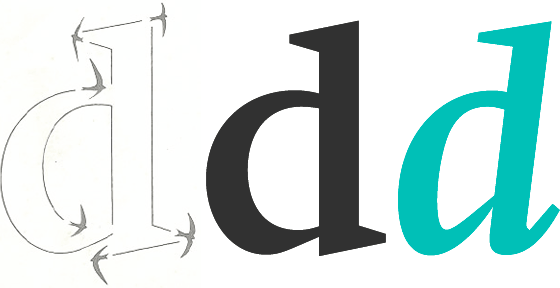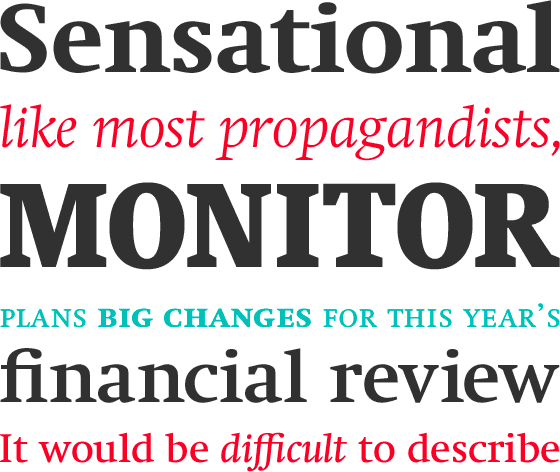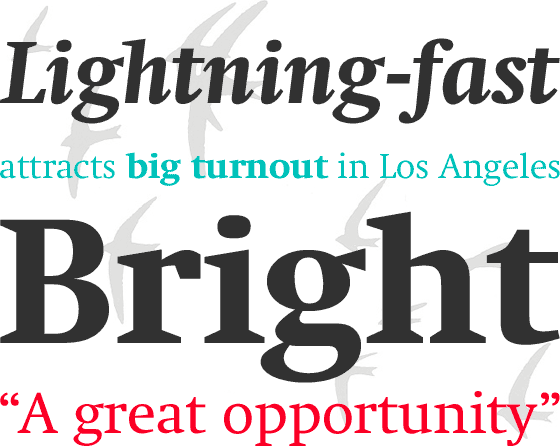Discover legacy content from Linotype.com, preserved for your reference.
Revised, expanded, and with more OpenType features – Meet Neue Swift

Swift – named after a bird
Lightning-fast swifts draw lines and exciting arcs in the air – an example for the designer’s hand and pencil. Their long, graceful wings and short, firm bodies give striking silhouettes, echoed in these letters with their large serifs and pronounced shapes.
It would be difficult to describe Neue Swift as a redesign of the classic Swift typeface family. Neue Swift is not so much a new design as it is a significant upgrade.
 |
During the early 1980s, Gerard Unger first designed Swift for a company named Dr.-Ing. Rudolf Hell GmbH. Known as “Hell” for short (a surname meaning “bright” in German), this company produced the very first digital typesetting machine – the Digiset, back in 1968. Hell had clients the world over, many of them in the newspaper industry. Unger had already created a number of original typefaces for Hell before he conceived of Swift. But Swift probably made the biggest impact of all his designs.
The Swift family brought in a breath of fresh air to 1980s newspaper design. In the past 25 years, Swift has achieved such broad use that it may be numbered among the most successful and popular serif typefaces of the 20th century. Linotype, which acquired the Hell company in 1989, has been distributing Swift since the mid-1980s.
The Swift family brought in a breath of fresh air to 1980s newspaper design. In the past 25 years, Swift has achieved such broad use that it may be numbered among the most successful and popular serif typefaces of the 20th century. Linotype, which acquired the Hell company in 1989, has been distributing Swift since the mid-1980s.
 |
Around 1995, Unger revisited Swift, bringing Swift 2.0 onto the market. Unger distributed Swift 2.0 on his own. The Swift 2.0 family had been redrawn from scratch using PostScript outlines; the original Swift had been digitized with the help of the now-defunct IKARUS system.
Recently, Linotype worked together with Unger to create new OpenType fonts based on Swift 2.0. These would not offer small caps and oldstyle figures as separate fonts, like in the days of old PostScript Type 1 files. Instead, all typographic features would be accessible as OpenType features, as customers have long-since come to accept!
Dubbing these “new Swift 2.0” fonts “Neue Swift” (“neue” means “new” in German), Linotype also expanded the character set, adding dozens of new glyphs per font. This allows speakers and readers of even more Central and Eastern European languages to set text in the new Swift design.
Recently, Linotype worked together with Unger to create new OpenType fonts based on Swift 2.0. These would not offer small caps and oldstyle figures as separate fonts, like in the days of old PostScript Type 1 files. Instead, all typographic features would be accessible as OpenType features, as customers have long-since come to accept!
Dubbing these “new Swift 2.0” fonts “Neue Swift” (“neue” means “new” in German), Linotype also expanded the character set, adding dozens of new glyphs per font. This allows speakers and readers of even more Central and Eastern European languages to set text in the new Swift design.
 |